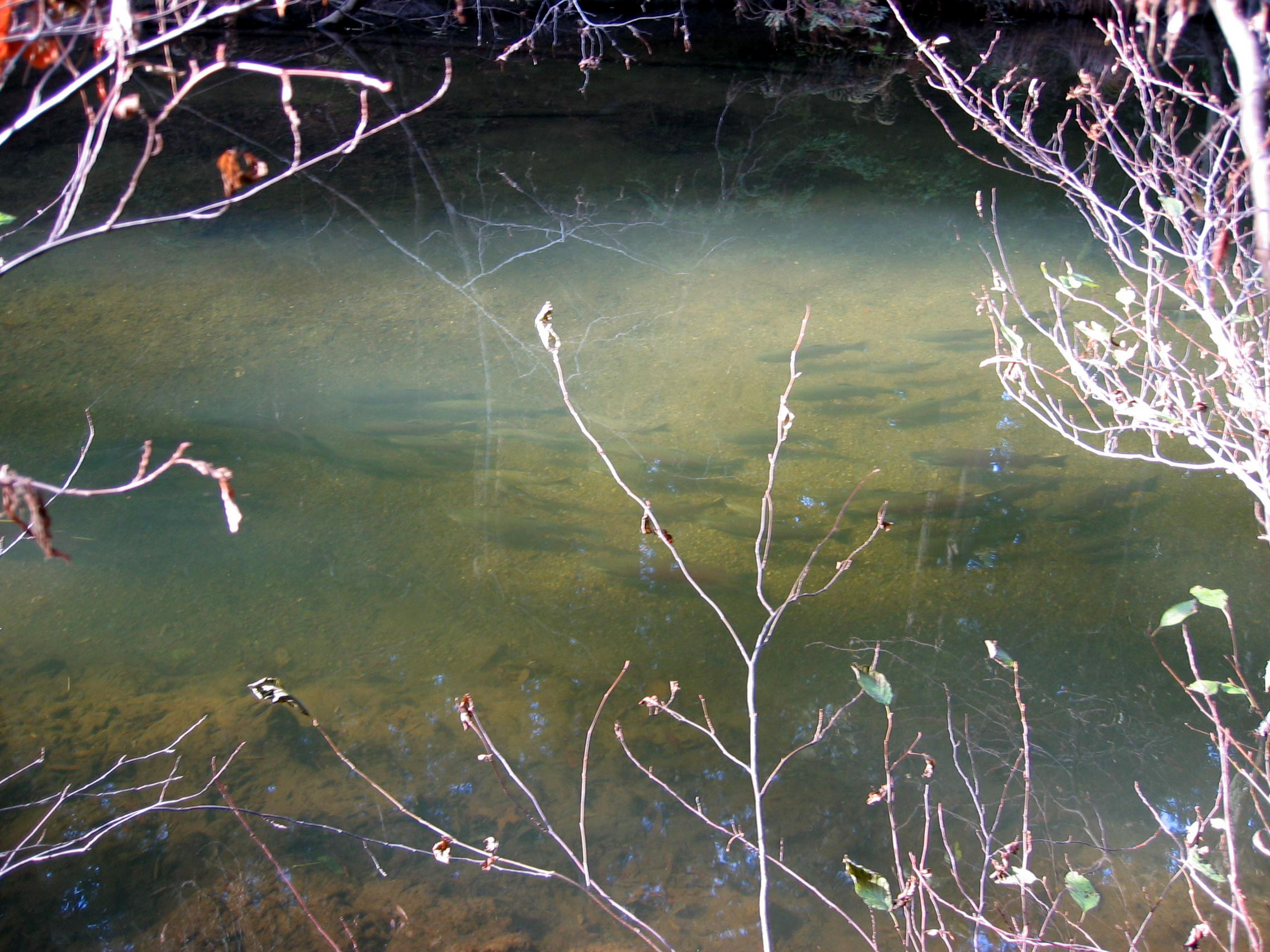PRESS RELEASE
For Immediate Release: April 9, 2012
Contact: Erica Heimberg, (415) 663-8590 ext. 105
Unusual Bedfellows Rebuff San Geronimo Valley “Stewards” Litigation Against Salmon Protection and Watershed Network
The California Building Industry, the Sierra Club, and The California League of Cities File Amicus Briefs Against “Stewards” Strange Legal Theory That Tolling Agreements are Illegal Under CEQA
San Francisco – The First District California State Appeals Court will hear arguments Wednesday, April 11, on the legality of a tolling agreement under state environmental laws that was made between salmon protection advocates and the County of Marin in 2008 to prevent litigation. Organizations that usually line up on opposite sides of property rights disputes are lining up in opposition to the lawsuit challenging the tolling agreement filed by homeowners in San Geronimo Valley who oppose strong measures to prevent the extinction of Coho salmon in local creeks.
The California Building Industry, a statewide trade association representing 3,000 businesses, homebuilders and land developers, and the Sierra Club, representing 1.3 million members and supporters dedicated to protection of the wild places of the earth, have each filed legal “amicus” (friends of the Court) briefs opposing a lawsuit filed by the leadership of the homeowners, who call themselves the San Geronimo Valley “Stewards,” and their peculiar legal theory that a `tolling agreement’ entered into between the County of Marin and SPAWN (Salmon Protection and Watershed Network), a commonly used tool which promotes “efficient and timely resolution of CEQA disputes,” is illegal.
“It is ironic that the self-claimed “Stewards,” who have accused SPAWN of wasting County funds by filing a lawsuit to protect our endangered coho salmon, have decided to continue to pursue their expensive and bizarre lawsuit at the California Court of Appeals, after being rebuffed in Superior Court,” said Larry Fahn, former national President of the Sierra Club, and a Marin resident. “If Marin’s coho are to survive they need all the help they can get, and we’re lucky to have an organization like SPAWN fighting for their survival.”
In addition to the Sierra Club and California Building Industry, the California League of Cities, an association of 469 California cities, and the California State Association of Counties representing 58 counties, also weighed in with legal briefs opposing the Stewards claims.
Having lost at the Superior Court level last year, the leaders of the San Geronimo Valley “Stewards” have filed a second expensive appeal in the California Court of Appeals claiming that SPAWN and the County of Marin broke the law when they entered in a tolling agreement to try to avoid litigation. Earlier this month, the County of Marin approved another $100,000 to pay outside legal Counsel to address the Steward’s lawsuit.
In the original filing, attorneys representing SPAWN noted, “While Intervenors cite case law for the unremarkable proposition that statutes of limitations provide a cut-off beyond which a potential claimant cannot seek judicial relief, they do not offer any authority to support their novel legal theory that parties are precluded from mutually tolling the statutory filing period. To the contrary, California courts have long recognized the legality of agreements to toll or waive statutes of limitations, and Code of Civil Procedure section 360.5 codified this common law doctrine over half a century ago. Nothing in either Public Resources Code section 21167 or Government Code section 65009 suggests that the California Legislature intended to abrogate this time-honored rule. Had the Legislature wanted to prohibit voluntary tolling agreements that provide potential litigants with some `breathing space’ to resolve conflicts outside the courtroom, it could certainly have done so. In the absence of legislation direction, the Court should not read such a far-reaching prohibition into these statutes.”
If the Stewards were to prevail, legal scholars believe the repercussions would be great, threatening already over-stretched California Courts with additional expensive lawsuits that often can be avoided by the use of tolling agreements.
The California League of Cities in their legal brief states, “If this vital tool is removed, many tolling agreements now in effect would be invalid and project opponents will feel compelled to immediately protect their rights and enter time-consuming and costly litigation.”
The Sierra Club argues in their brief that “Intervenors’ effort to invalidate tolling agreements under CEQA should be rejected because tolling agreements avoid unnecessary litigation and are consistent with CEQA’s overarching objective of minimizing environmental harm. In the Sierra Club’s experience, tolling agreements provide an efficient means to achieve positive environmental outcomes…”
The California Building Industry noted in their brief, “The availability of tolling agreements is particularly important in CEQA cases because CEQA’s short statute of limitations rarely allows enough time for meaningful settlement discussions to conclude before the statute runs. Tolling agreements allow funds in the development budget that would otherwise be reserved for litigation to be made available to facilitate settlement.”
While SPAWN is defending itself against this frivolous legal maneuver using the donated (free) services of the Stanford Law School, the County has had to hire expensive outside council of the Sacramento law firm of Remy Moose Manley, LLP to represent itself.
Amicus Brief from CA Builders Assoc (April 9, 2012 – 503KB PDF)
Legal brief for media and research.
Amicus Brief from Sierra Club (April 9, 2012 – 507KB PDF)
Legal document for media and research.
Amicus Brief from CA League of Cities (April 9, 2012 – 687KB PDF)
Legal document for media and research.




